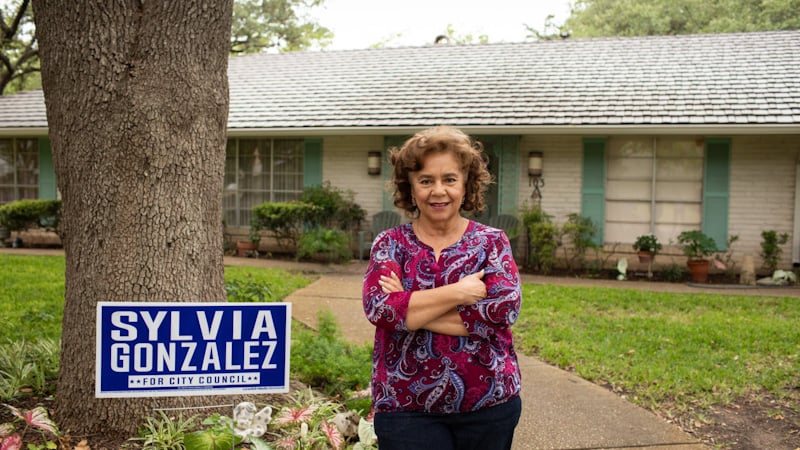SCOTUS will hear 'backdoor censorship' case of council member arrested for placing document in binder

Sylvia Gonzalez, a resident of Castle Hills, Texas, spoke out against her city government and was arrested for it. Photo from the Institute for Justice’s press release.
The U.S. Supreme Court on Friday agreed to consider what kind of evidence is needed to defeat a qualified immunity claim by government officials accused of engineering the retaliatory arrest of a new city council member who criticized the city manager.
The Supreme Court accepted the case of 76-year-old Sylvia Gonzalez, who sued Castle Hills, Texas, officials after she was arrested for placing her citizen petition seeking the city manager’s ouster into her binder, according to SCOTUSblog and a press release from the Institute for Justice, a nonprofit public interest law firm.
Gonzalez was accused of stealing the petition from the mayor and charged with tampering with a governmental record, she wrote in an article in USA Today. The district attorney dropped the charge. But Gonzalez resigned from her council seat.
Gonzalez is represented by the Institute for Justice. One of the group’s attorneys, Anya Bidwell, said in the press release Castle Hills, Texas, officials should not be allowed to use criminal laws “to launder First Amendment violations and create backdoor censorship.”
Gonzalez’s lawsuit alleged that her arrest was retaliation for activity that is protected by the First Amendment. The 5th U.S. Circuit Court of Appeals at New Orleans tossed the suit, holding that the mayor and police chief were protected by qualified immunity because there was probable cause for the arrest.
At issue is whether the government officials are protected under the Supreme Court’s qualified immunity decision Nieves v. Bartlett. In that case, the Supreme Court held that an officer who has probable cause to make an arrest may still be liable for First Amendment retaliation if officers typically exercise their discretion not to make arrests in such circumstances.
Gonzalez claimed that she could sue because other indictments for violating the tampering law involved dissimilar allegations—typically forging government IDs or tampering with financial records, SCOTUSblog explains. The 5th Circuit ruled, however, that Gonzalez had to show that other people who mishandled government petitions were not charged.
The case is Gonzalez v. Trevino.
The SCOTUSblog case page is here.
Write a letter to the editor, share a story tip or update, or report an error.



